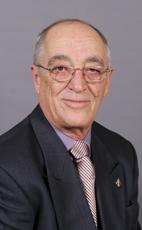Mr. Speaker, since March 19, there hase been cause for great sadness. The United States and Britain have committed their armed forces to a war against Iraq. The Prime Minister of Canada said that this war is unjustified, illegal and illegitimate.
I would like to point out that more than 750,000 Quebeckers marched on the streets in Montreal, Rouyn-Noranda, Quebec City, Chicoutimi, Sherbrooke, Rivière-du-Loup, Gaspé, Gatineau and many other communities, I am sure. Every region of Quebec is against this war. As well, last week, 1,162 students from the polyvalente Deux-Montagnes in my riding asked me to deliver a petition against this war to the Prime Minister and the Minister of Foreign Affairs, which I did.
This weekend, the Les Patriotes scouting association in Saint-Eustache, the Les Patriotes continuing education centre in Saint-Eustache and the high school in Oka all sent me petitions asking the Prime Minister not to change his mind and not to involve the Canadian military in this war. Clearly, since the outbreak of hostilities, human beings, civilian and military, from both sides, have died. Such a tragedy. Such an atrocity.
Today we ask ourselves the question: why is this war being fought? Is this a pre-emptive war? That makes no sense. As it was already mentioned, we do not know whether or not Iraq has weapons of mass destruction. The inspectors, having left the country in 1998, were starting over with the inspection process. Obviously, there are some in the United States who were convinced that the answer to this question is yes. They feel that the United States and the world should intervene militarily to ensure everyone's security. So far, the inspectors found nothing to confirm that Iraq had re-established its nuclear program.
Of course, Saddam Hussein would have loved to get his hands on a nuclear weapon and he probably has chemical and biological weapons in his arsenal. However, does this justify a so-called military intervention? Is it justified?
Of course, we do not want to discover that Saddam Hussein has nuclear weapons only when he uses them. However, this attack is illegal under international law. No country has the right to attack another country because it thinks it should for whatever reason. In fact, there must be solid proof for any intervention. This is akin to what the Japanese did to Pearl Harbor.
But the greatest danger of a pre-emptive strike is the precedent created. Now that the United States has attacked Iraq, what will prevent other countries from intervening to stop much greater threats? Japan could attack North Korea, India could attack Pakistan, and so on.
It should also be said that all this seems a bit simplistic. How many other regimes have or could have weapons of mass destruction? Should they be attacked?
How many other dictators represent a threat to their region? So, we are stuck in a very pragmatic, selective and, by its nature, unstable policy. In answer to this argument, the United States can only flex its muscles and tell the world that it is an exception on the international scene.
In terms of the war against terrorism, is this war part of the fight against terrorism? This is another question that must be asked. The inspectors could not find conclusive proof that Saddam Hussein's regime is helping or helped Osama bin Laden and al-Qaeda. However, the war provides plenty of reasons to resort to terrorism.
In terms of disarming Iraq, I think that the international community, through diplomacy, was on the right track. In fact, on March 17, UN inspectors said that 72 al-Samoud missiles had been destroyed, approximately half of Iraq's stockpile of such weapons. The destruction undertaken constituted a substantial measure of disarmament, according to chief UN weapons inspector Hans Blix. Mohamed El-Baradei, director general of the International Atomic Energy Agency, indicated, during the same session, that he had found no evidence of the revival of a nuclear weapons program in Iraq nor that Iraq had attempted to import depleted uranium or uranium.
On March 10, the UN chief inspector announced that he would be prepared to submit a new report to the Security Council next week. Unfortunately, March 19 put an end to that.
There is one more question one might well ask: why this war? To get Saddam Hussein out of power? Yes, getting rid of Saddam Hussein might be a good reason, but I think that diplomacy, coupled with pressure from neighbouring countries, could have pushed him into involuntary retirement.
There is another question: might this have something to do with controlling the region's oil? No sooner asked than answered, that one.
Now, having asked those questions, I have one very important and highly complex point to raise: what about after the conflict? I agree that we need to acknowledge the complexity of the question, as well as the regional and international impacts of the situation, and will raise a few points in this connection.
Other Arab countries are seeing public demonstrations, and some other governments might fall if they were to support the United States too openly. This would clearly be a backward step.
There is the question of transition, the post-Saddam era. The United States will stay there. The Kurd issue is of concern to Turkey, which has its own problems with its Kurdish minority. Syria, with an ethnic mix similar to Iraq's, is concerned about the possible disintegration of Iraq. The Palestinian question is also of great importance to any assessment of the situation. Let us keep in mind that Saddam Hussein is trying every way possible to mobilize the Arab world against the Americans and their Israeli allies.
In closing, Canada must speak out loud and clear before important decisions are made on the future of Iraq.

